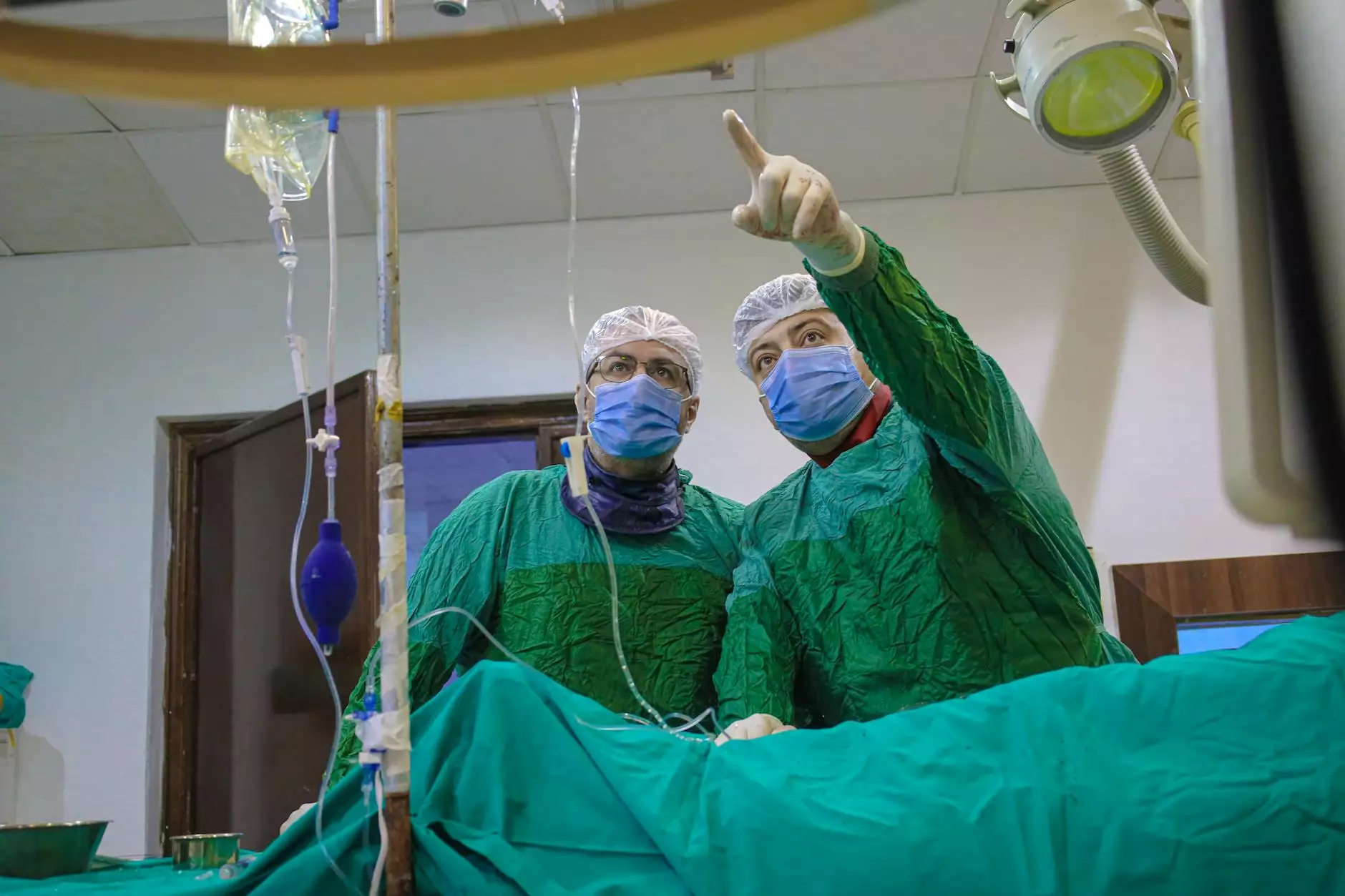Understanding Gastric Bypass Surgery

The gastric bypass procedure is a widely recognized bariatric surgery designed to assist individuals struggling with obesity. This surgical intervention significantly aids in weight reduction, improves metabolic health, and often resolves comorbidities associated with obesity.
What is Gastric Bypass?
Gastric bypass surgery, also known as Roux-en-Y gastric bypass, involves creating a small stomach pouch, which limits food intake and alters how the body absorbs nutrients. By bypassing a portion of the small intestine, it achieves two main effects:
- Restriction: The small stomach pouch reduces hunger by limiting food intake.
- Malabsorption: Bypassing parts of the intestine diminishes caloric and nutrient absorption.
The Benefits of Gastric Bypass
Patients undergoing gastric bypass surgery often experience numerous benefits, including:
- Significant Weight Loss: Many patients lose a substantial amount of weight within the first year.
- Improved Quality of Life: Weight loss leads to enhanced physical and mental wellbeing.
- Resolution of Comorbid Conditions: Conditions such as type 2 diabetes, hypertension, and sleep apnea often improve or resolve post-surgery.
- Increased Longevity: Studies indicate that bariatric surgery can lead to a reduced risk of dying from obesity-related complications.
Who is a Candidate for Gastric Bypass?
Not everyone qualifies for gastric bypass. Candidates typically include individuals who meet the following criteria:
- Body Mass Index (BMI): A BMI of 40 or greater, or 35 or greater with obesity-related health conditions.
- Previous Weight-Loss Methods: Documented failure of nonsurgical weight-loss methods.
- Commitment to Lifestyle Changes: A willingness to adhere to dietary guidelines and follow-up protocols post-surgery.
The Gastric Bypass Procedure Explained
The gastric bypass surgery typically follows these steps:
- Anesthesia: The patient is given general anesthesia to ensure comfort during the surgery.
- Stomach Pouch Creation: The surgeon creates a small pouch from the upper section of the stomach.
- Intestinal Reconfiguration: The small intestine is cut and rearranged to connect to the newly created stomach pouch.
- Conclusion of Surgery: The incisions are closed, and the patient is awakened from anesthesia.
Post-Operative Care and Recovery
Recovery from gastric bypass varies between individuals. Here's what to expect during the post-operative phase:
- Hospital Stay: Most patients stay in the hospital for 2 to 3 days post-surgery.
- Diet Progression: Initially, patients follow a liquid diet, gradually progressing to pureed foods, and eventually to regular food.
- Follow-Up Appointments: Regular visits to the healthcare provider are necessary to monitor weight loss and nutritional health.
- Potential Side Effects: Patients may experience fatigue, nutritional deficiencies, and emotional changes, requiring ongoing support.
Nutritional Guidelines After Gastric Bypass
Post-surgery nutrition is crucial for successful weight loss and overall health. Key guidelines include:
1. Protein First
Prioritize high-protein foods to facilitate healing and muscle maintenance.
2. Hydration is Key
Drink plenty of water but avoid drinking during meals to prevent overfilling the stomach pouch.
3. Avoid Sugary and Fatty Foods
Minimize sugar and high-fat foods to reduce the risk of dumping syndrome and ensure effective weight loss.
4. Portion Control
Small, frequent meals are essential to accommodate the reduced stomach size.
Potential Risks and Complications of Gastric Bypass Surgery
While gastric bypass is generally safe, it is essential to be aware of potential risks, which can include:
- Infection: As with any surgery, there is a risk of infection.
- Blood Clots: Increased risk of clotting, particularly if mobility is limited post-surgery.
- Dumping Syndrome: A condition where food moves too quickly from the stomach to the small intestine, causing symptoms like nausea and diarrhea.
- Nutritional Deficiencies: Reduced absorption can lead to deficiencies in vitamins and minerals, requiring supplementation.
Selecting the Right Medical Center for Gastric Bypass
Choosing a reputable medical facility for your gastric bypass surgery is crucial. When selecting a center, consider the following:
- Accreditation: Ensure the facility is accredited for bariatric surgery.
- Surgeon Qualifications: Look for board-certified surgeons with experience in gastric bypass procedures.
- Patient Reviews: Research patient testimonials and success stories.
- Support Services: A good center offers comprehensive support, including dietary counseling and psychological assessments.
Conclusion: Your Journey to Health with Gastric Bypass
Embarking on the journey of gastric bypass surgery is a significant step toward transforming your health and life. Through careful consideration, preparation, and selection of the right support, you can achieve lasting weight loss and improved wellbeing.
If you want to learn more about gastric bypass and explore your options at Antalya Health, a leading medical center specializing in innovative health solutions, don’t hesitate to reach out. Your path to a healthier future starts today!







